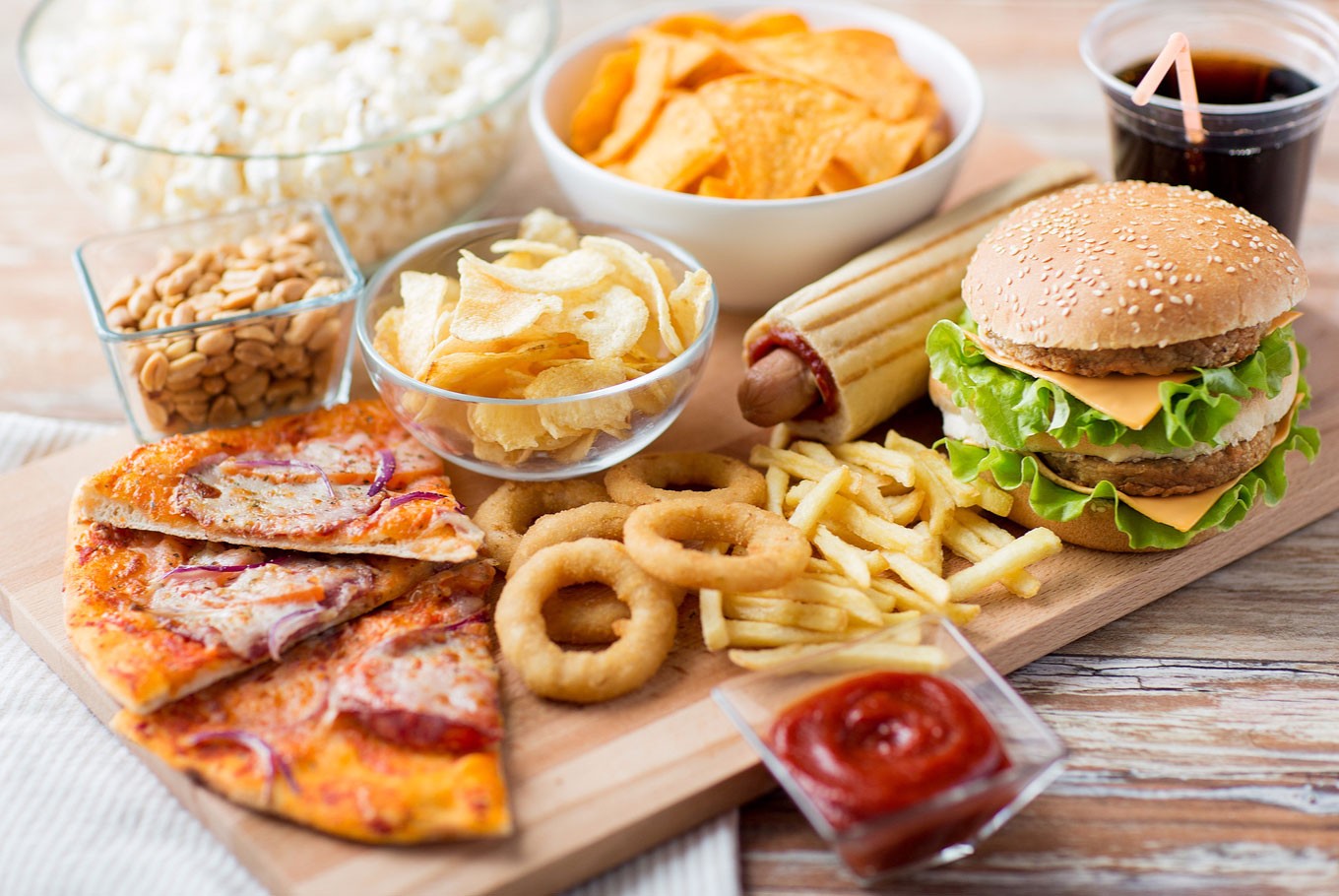What really happens to your body when you eat fast food.

Why we need to cook more at home.
We have all been there – a cheeky burger and fries on the road, or a bucket of chicken for a quick Thursday night dinner or a family pizza meal deal on a Friday night – fast food. The quick, highly processed food that can be served and consumed within a 5-10 minute period. Now we have been taught that heathy balance is all about moderation and an occasional fast food meal will do no harm. When we take a closer look at what happens physiologically after eating just one fast food meal maybe it is time, to be honest with ourselves about what really happens when we load up on thousands of calories via a fast food meal and why cooking at home is always a healthier option.
Despite there being some ‘healthier’ fast food meals available, on the whole, these options are few and far between. In general, fast food is extremely high in fat and calories, as well as processed carbohydrates, sugars and salt. The most popular fast-food meals deals contain almost as many calories as you need for an entire day, along with more sugar, salt and saturated fat than you need in almost 2 days. There is not a lot of good you can say about fast food in general.
Now the health consequences of eating a high fat diet long term are well documented – weight gain, increased risk of heart disease, diabetes and some types of cancer just a few of the health consequences associated with eating highly processed food on a regular basis. But what about in the short term? The reality is there are several nasty side effects even when you eat fast food only occasionally.
First and foremost overloading the stomach and the brain with an influx of fat, calories, carbs and sugars has a strong programming effect associated with wanting more and more of these ultra-processed foods. This means that even though you may have downed 1000 calories in less than 10 minutes, the body loves this density of energy so much that it craves it again very quickly. In real life terms this means you are likely to feel hungrier again more quickly, and even likely to crave more and more of this high fat, sugary food.
Next the extremely high salt contents of the average pizza, burgers, noodles and fried chicken meals is enough to put pressure on the healthiest of arteries. Significant changes in the elasticity of blood vessels can be observed within hours of a fast food meal being consumed, as can changes in blood pressure levels – both important variables that determine our overall heart health and risk of stroke. In addition, the high salt content will generally see the retention of extra fluid as the body works overtime in trying to get rid of the huge amount of salt it has been exposed to. This is the reason you may feel tired, bloated and lethargic an hour or two after eating fast food. For our hearts it also means working harder which places more stress on the body overall.
Then we have the issue of insulin – insulin is the primary regulator of fat and carbohydrate metabolism. When a meal that is particularly high in fat and carbs is consumed, the body is forced to release extra insulin in an attempt to keep blood glucose levels controlled. High levels of insulin over time are linked to weight gain, hunger, insulin resistance, diabetes and inflammation in the body. This means that each and every time we overeat with a large meal deal, there is increased pressure on our insulin levels, ultimately leading to slow, and insidious weight gain over time.
So now that you are feeling pretty guilty about the last upsized meal deal you ordered, how can you still enjoy your favourite take away minus the negative health consequences? Easy – skip the deep fried meal deals and if you must indulge in a burger, just get the burger and skip the soft drink and extra large fries that generally go with it. Keep in mind that whole pizzas, deep fried chicken and fries are the worst options so when you can seek out kebabs, Mexican or Asian stir fried dishes which are generally a little lower in sugars, fats and salts. And most importantly learn to indulge a little less. Once a week for fast food is too much, once a month or less is ideal and really cooking more at home is the way to go.

Comments
Post a Comment